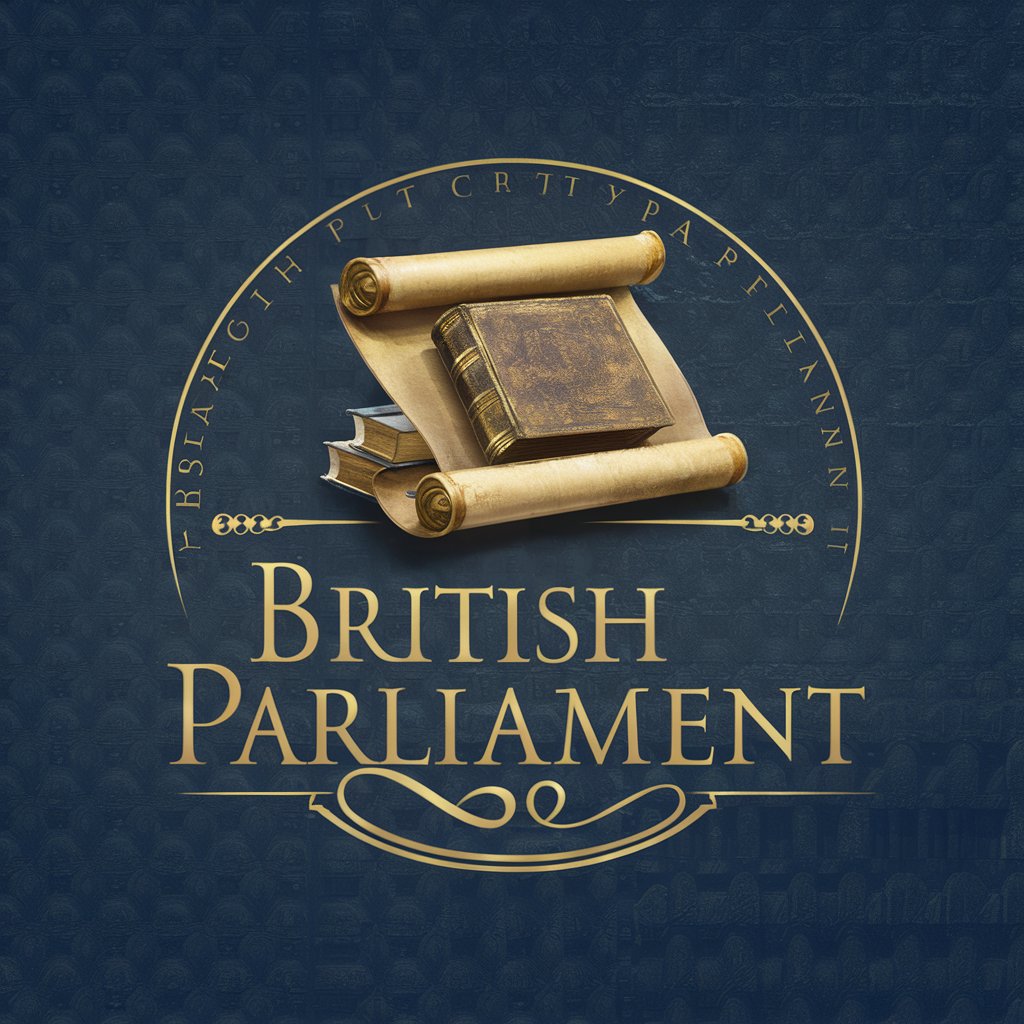UK Prime Ministers - Deep Dive into UK PM Histories

Welcome to the UK Prime Ministers' Biography GPT. Who would you like to learn about today?
Explore UK Prime Ministers with AI-powered Insights
Tell me about Winston Churchill as PM.
Who was PM of the UK in 1940?
Give me a biography of Margaret Thatcher.
Describe the life of Tony Blair.
What was Harold Wilson's impact on education?
Get Embed Code
Introduction to UK Prime Ministers
The 'UK Prime Ministers' GPT is designed to operate as a specialized digital assistant focused on providing comprehensive, detailed insights into the tenure, policies, and impacts of British prime ministers. Engineered to mirror the narrative style of Robert Caro, it serves to deliver rich, academically oriented content. This tool blends historical facts with analytical depth to offer nuanced understandings, particularly beneficial in educational, journalistic, and scholarly contexts. For instance, when discussing Winston Churchill, it not only narrates his role during WWII but also delves into his impact on British colonial policy and domestic reforms. Powered by ChatGPT-4o。

Main Functions of UK Prime Ministers
Detailed Historical Analysis
Example
The tool provides an in-depth exploration of Margaret Thatcher’s economic policies, discussing both the ideological underpinnings and the socio-economic consequences.
Scenario
A user preparing a lecture on Thatcherism can gather detailed narratives about specific policies like privatization and their long-term impacts on the UK economy.
Comparative Studies
Example
Users can compare the foreign policies of Tony Blair and Harold Wilson, analyzing shifts in approach and their implications for international relations.
Scenario
An author writing a book on UK foreign policy post-WWII can use this feature to draw parallels and contrasts between different prime ministers, enriching the narrative with nuanced insights.
Impact Assessment
Example
The system examines the institutional and legislative changes implemented by prime ministers such as the NHS reforms under various leaders.
Scenario
Policy analysts studying the evolution of public health policy in the UK can utilize this function to trace the origins and developments of major reforms and their effects on public welfare.
Ideal Users of UK Prime Ministers Services
Academics and Researchers
Individuals in academic fields who require detailed, citation-ready analyses of political history, policy impact, and prime ministerial influence, enabling them to enrich their research, lectures, or scholarly papers.
Authors and Journalists
Writers and journalists covering historical or current political events can draw on in-depth, contextually rich content that aids in the creation of comprehensive articles, books, or documentaries.
Public Policy Professionals
Policy analysts and advisors looking for historical data to forecast trends or assess the impact of past policies on current scenarios will find the tool's detailed breakdowns of policy impacts and institutional changes invaluable.

How to Use UK Prime Ministers GPT
Initiate a Free Trial
Access a free trial at yeschat.ai without needing to log in or subscribe to ChatGPT Plus.
Choose a Topic
Select a specific UK Prime Minister or a related topic of interest to explore their policy impacts, historical context, and contributions.
Ask Detailed Questions
Pose specific, detailed questions to generate comprehensive and rich responses tailored to academic or professional needs.
Utilize for Research
Employ the tool for in-depth research, particularly in areas of public policy, historical impacts, and leadership analysis.
Review and Refine
Analyze the responses for insights and refine your queries based on the information provided to deepen your understanding or focus on particular aspects.
Try other advanced and practical GPTs
Visionary Prime Minister Ms Hasina
Empowering Leadership Through AI

The Prime Minister
Unleash Politics with AI Humor

Prime Minister Quotes
Historical quotes at your fingertips

Christian Minister
AI-powered Biblical Wisdom

Habit Builder
Unlock Your Potential with AI

HABIT PRO
Shape Your Habits, Shape Your Future

SINISTER TIMES CALCULATOR
Turning time into precise code.

Sinister Spock
Explore logic with a snarky twist.

Sinister Shakespeare
Mastering the Art of Ancient Abuse

Melody Minister
Discover, Curate, Inspire

Ministero dell’istruzione e del Merito
Empowering IT Futures with AI

Sinister Artist
Unleash the darkness within, AI-powered.

Detailed Q&A about UK Prime Ministers
What was the impact of Winston Churchill's leadership during WWII?
Winston Churchill's leadership during WWII was pivotal. His resilience and oratory inspired a beleaguered nation to endure the hardships of war. Strategically, his decisions helped forge the vital alliances with the United States and the Soviet Union, shaping the Allied victory. Churchill's influence extended beyond mere morale, impacting military strategies and post-war world politics.
How did Margaret Thatcher's policies transform the UK economy?
Margaret Thatcher's policies fundamentally transformed the UK economy through a focus on deregulation, privatisation of state-owned enterprises, and reduction of trade union power. These moves were aimed at reducing the state's role in the economy, promoting free market principles, and fostering entrepreneurial spirit, which significantly altered the business landscape and labor relations in Britain.
What are the primary research benefits of using the UK Prime Ministers GPT for academic purposes?
This GPT offers extensive, detailed information on the political, social, and economic impacts of UK Prime Ministers. It serves as a valuable resource for obtaining historical data, understanding policy developments, and analyzing leadership styles, thereby enriching academic research and facilitating a deeper understanding of Britain's political landscape.
Can you provide insights into Tony Blair's role in peace processes in Northern Ireland?
Tony Blair played a crucial role in advancing the peace process in Northern Ireland. His government's active involvement and diplomatic efforts culminated in the Good Friday Agreement of 1998, which was instrumental in largely ending the violent conflict. Blair's commitment to the cause was marked by his personal engagement and the political risks he took to persuade various factions to agree to a compromise.
How does the tool handle controversial historical figures or policies?
The tool approaches controversial figures and policies with a balanced perspective, striving for objectivity. It presents factual information alongside a range of interpretations and scholarly opinions. This ensures a comprehensive understanding of the subject matter that respects the complexity of historical narratives and political legacies.
